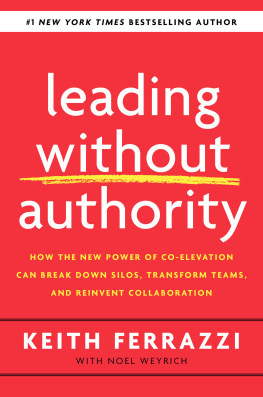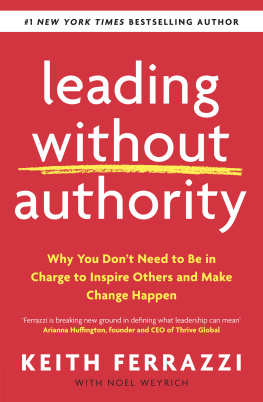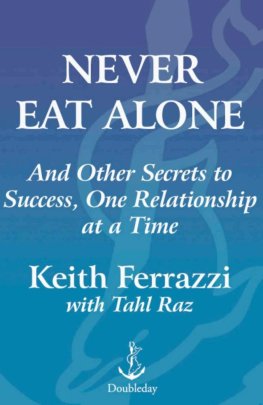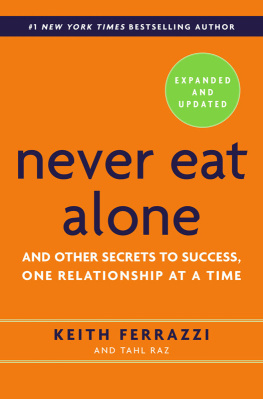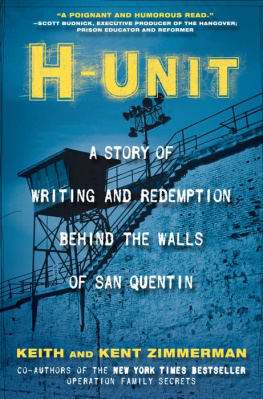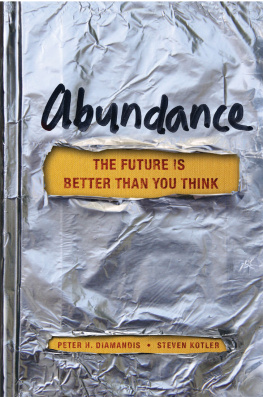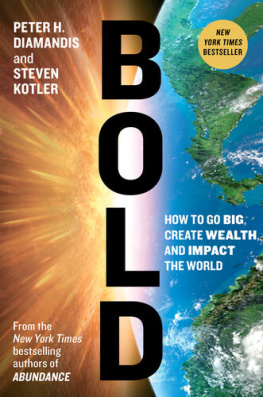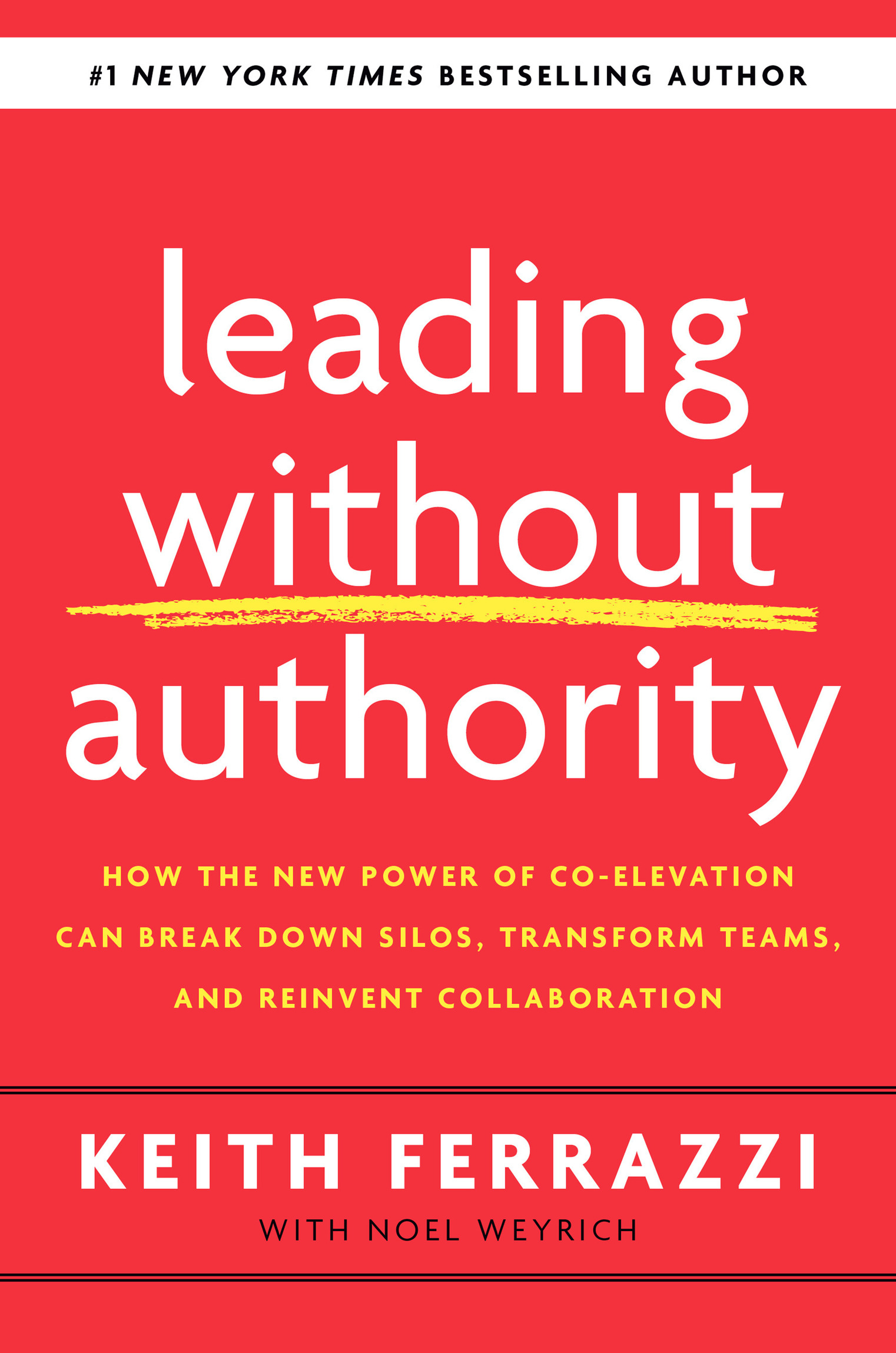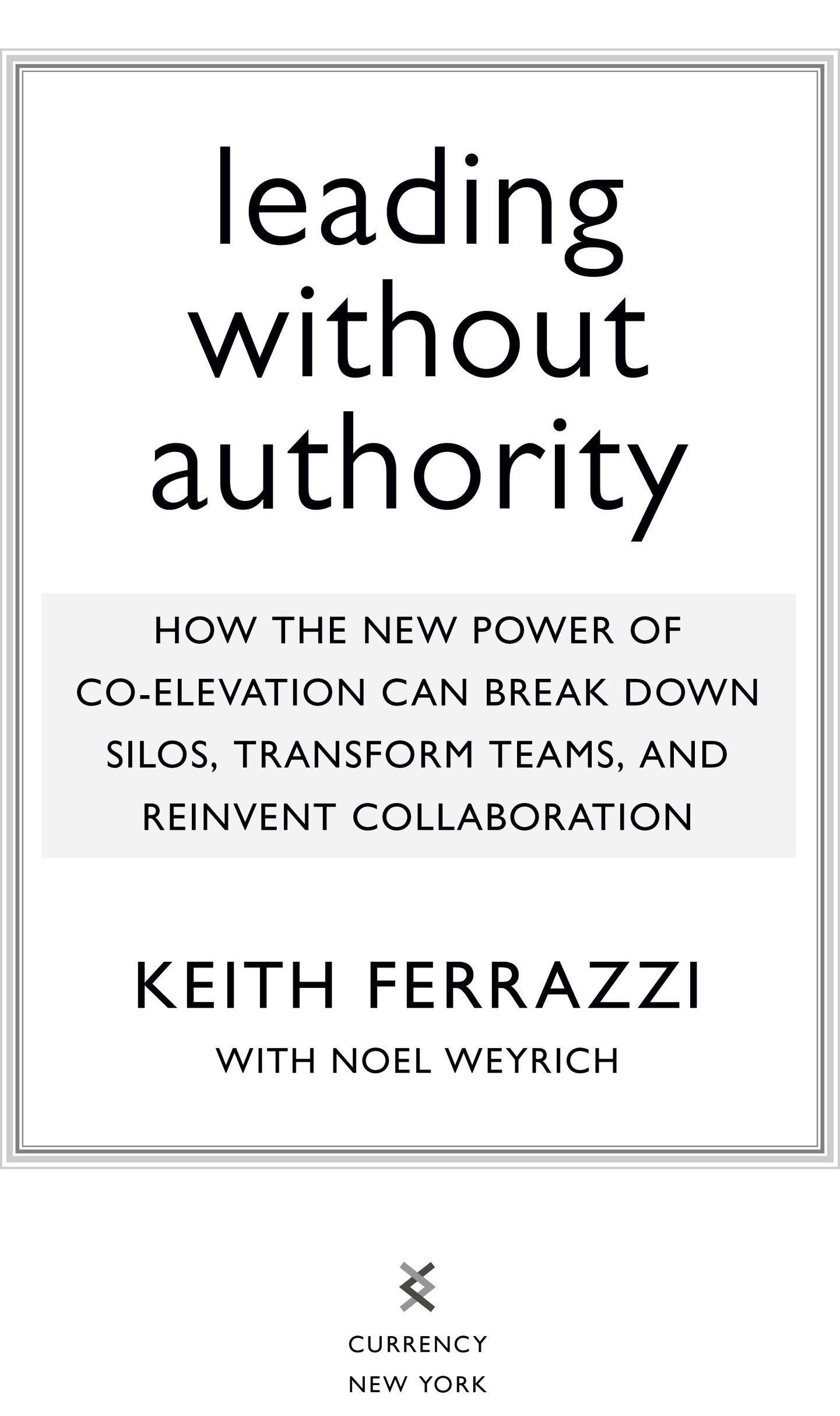All rights reserved.
Published in the United States by Currency, an imprint of Random House, a division of Penguin Random House LLC, New York.
C URRENCY and its colophon are trademarks of Penguin Random House LLC.
Names: Ferrazzi, Keith, author.
Title: Leading without authority / Keith Ferrazzi.
Description: First edition. | New York: Currency, [2020] | Includes bibliographical references and index.
Identifiers: LCCN 2020003080 (print) | LCCN 2020003081 (ebook) | ISBN 9780525575665 (hardcover) | ISBN 9780593138694 (international) | ISBN 9780525575672 (ebook)
Subjects: LCSH: Leadership. | Organizational behavior. | ManagementEmployee participation.
Classification: LCC HD57.7 .F4726 2020 (print) | LCC HD57.7 (ebook) | DDC 658.4/092dc23
introduction
THE NEW WORK RULES FOR A NEW WORK WORLD
Nothing gets done in a single silo or function anymore. Constant collaboration is at a new premium, because the big things are always led by cross-functional teams. We need people driven by purpose, passion, and persistence, not position or job title. We need people who will seek out the right solution and then figure out how to get a team together to build it. Its no longer about hiring great talent. Its about hiring talent that will make the team great.
BRIAN CORNELL , CEO, Target
We live in a momentous time in human history, one that has never offered more abundance and opportunity. But these times have also brought about a Category 5 hurricane of disruptive changes. Breathtaking advances in science and exponential technological innovation bloom all around us, making our lives better and easier. And yet there are people at all levels of organizations who feel fatigued, fretful, and even beaten down at work. Its a Dickensian dichotomythe best of times and the worst of times.
Everywhere I go, I hear a litany of lamentations. In a given week I may coach executive teams at a medical products company in Japan, a global bank in New York, an aerospace contractor in Los Angeles, or a hedge fund in Moscow. The complaints I hear are all the same. Outwardly, they touch upon turf battles, budget brawls, and organizational constraints, but they are heartfelt, born of real fear of personal failure.
Many are quick to blame the mounting pressures caused by technology. But I disagree. This era of explosive change has merely exposed the built-in flaws and unsound footing of how we have always worked. Even at companies that extol values like inclusion and collaboration on their websites and breakroom walls, I hear a similar beleaguered sentiment echoing up and down the chain of command. Executives, managers, and front-line associates alike bemoan their less-than-productive relationships with colleagues in the midst of disruption and transformation.
We are long overdue for a change in the way we work. Advancing technology has made that change an urgent necessity.
The idea that every employee in an organization must lead without authority is one of the most exciting and challenging realities in American business today. At Farmers I imagine the creative power of 20,000 employees, representing 20,000 life experiences and literally millions of insights, versus the natural limitations of a C-level leadership team of six or eight leaders with authority. These changes can be liberating if we embrace them, so that innovation and transformation are no longer the responsibility of a few leaders or teams, but instead represent opportunities for every employee.
JEFF DAILEY , president and CEO, Farmers Group, Inc.
THE LIMITATIONS OF AUTHORITY
When I was a young entry-level consultant at Deloitte in the 1990s, straight out of business school, I quickly discovered I wasnt cut out for building spreadsheets and crunching numbers. The work I was assigned left me feeling restless and bored, so I filled my off-hours doing things that were more interesting to me and, I felt, more beneficial to Deloitte. I made calls to ex-classmates, professors, and old employers to tell them all about my new employer and ask them for new leads. I booked myself as a speaker at small conferences all around the country on weekends, hoping to generate buzz and drum up business for Deloitte. I even organized a new business quality award in Illinois that advanced the states economic agenda while helping connect Deloitte Partners to regional business leaders.
The result? My first-year review was a humiliating experience Ill never forget. I just wasnt holding up my end of my assigned duties. But my supervisors saw promise in my hobby of generating new business for the firm. They decided to give me an expense account and set me loose to keep promoting Deloitte full-time, the same way Id been while off the clock.
In less than a year, I had developed an informal marketing function at Deloitte. With no one reporting to me and no real authority, I simply engaged everyone related to marketing that I could. I never let a title (or my lack of one) stop me. Early on, I asked to have dinner twice a year with Pat Loconto, Deloittes CEO at the time. During those meals, I did my best to be my authentic self, offering him my candid advice in the spirit of being of service to him and his legacy.
By leading without authority, I was determined to make an impact at Deloitte as we built a global brand name in the consulting business. I wasnt willing to wait ten years (typical at the time) to be anointed for some kind of leadership position. Instead, I built critical relationships with influencers inside and outside the company, and went on to become Deloittes chief marketing officer (CMO) and later its youngest-ever partner.
In 1994 I left Deloitte to become global CMO at Starwood Hotelsmaking me the youngest CMO at any Fortune 500 company at the time. This role, working with CEO Barry Sternlicht, gave me full authority over the marketing resources for all the companys divisions around the world. Together, we created a powerful global suite of brands that offered a consistent experience to our guests, no matter where they were. Over time, we consolidated Starwoods marketing resources, all in service of efficiency and global consistency, the same as our Deloitte team had done.
There was one person who fought my centralized authority. Starwoods head of Europe insisted that he and his marketing people were far better suited to decide where and how to spend Starwoods European marketing budgets. It was true that he knew the market more intimately, but my mandate was to invest in the global brand. We collaborated on European marketing, but he had to relinquish the control he would have liked.
Then Starwoods global president moved on, and guess who replaced him? Starwoods head of Europe. It wasnt long before I found my CMO position gutted, with most of my budget dispersed to marketing heads in regional divisions across the globe. My job was set to become a hollowed-out shell of what it had been; I was heading out the door.

